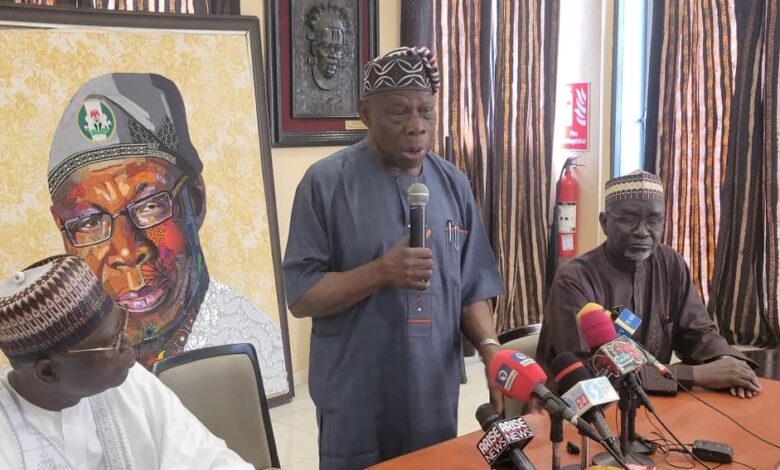NAIJA NEWS
Former Ogun State Governor, Olusegun Osoba, has attributed the reluctance of presidents and governors to hand over power to their deputies to deep-rooted mistrust and suspicion.
He made these observations during the 3rd Annual Conference of the Forum of Former Deputy Governors of Nigeria, held in Abuja, where discussions centred on governance challenges.
The theme of the event was “Strategic Solutions for Good Governance, Food Security, and Sustainable Growth in Nigeria.”
Osoba described the tendency for leaders to withhold power from their deputies as unfortunate, adding that it is a global phenomenon rather than one restricted to Nigeria or Africa.
He illustrated his point by referencing the strained relationship between former U.S. Vice President Al Gore and President Bill Clinton.
According to Osoba, Gore distanced himself from Clinton during his own presidential campaign, fearing that his association with Clinton could harm his chances.
“It is most unfortunate. It is not just in Africa — it happens all over the world. You will recall the case of Al Gore and Bill Clinton. Al Gore was his vice president, and he contested the presidency. But because he thought Clinton might be a liability, he didn’t involve him in his campaign.
“So, this issue is not limited to Nigeria. It is rare to see a deputy succeeding their boss. However, there are still opportunities for such individuals in this country. As I mentioned earlier, the array of leaders who are still young and passionate about Nigeria, even from what we have seen at this conference, gives us confidence that one day, one of them will emerge as the president of this country,” Osoba said.
The former governor also lamented the recurrent pattern of governors plotting or sponsoring the impeachment of their deputies.
When asked if the constitution could be amended to protect deputies from such actions, Osoba stated that legal changes would likely have little effect.
He explained that if a state’s legislature sides with the governor, there is little to prevent a deputy’s removal.
“Again, you can’t amend the constitution against governors using their influence and powers to impeach their deputies. There is nothing anybody can do about it. If the State House of Assembly is friendly with the governor, he can attempt anything, including impeaching his deputy.
“What we should continue to promote is for leaders to build relationships. It is not by law but through relationship. As they say, you wash your hands with both the left and right—it’s through cooperation,” he stated.
The National Chairman of the All Progressives Congress (APC) and former Kano State Governor, Dr. Abdullahi Ganduje, also addressed the topic, acknowledging its sensitive nature.
Ganduje lightened the discussion by joking that even God Almighty did not choose a deputy during creation, highlighting the controversial nature of the concept of deputizing.
He added that although leaders may hesitate to discuss the issue openly, continued advocacy could prompt lawmakers to consider a constitutional review aimed at strengthening the position of deputy governors and vice presidents.
“Whether you are a deputy governor or a vice president, it’s the same concept of deputising. This concept is a very controversial one.
“Even in theology, God has no deputy because of its controversial nature. God declared that everyone, including His prophets, is a servant. So, it’s an issue that remains a no-go area.
“But a leader doesn’t determine his continuity in office.


